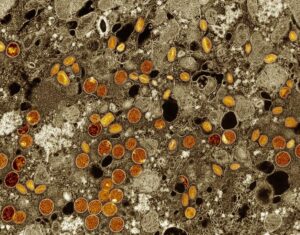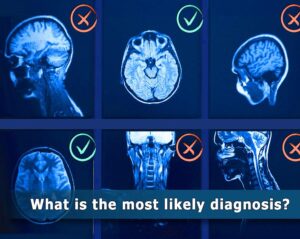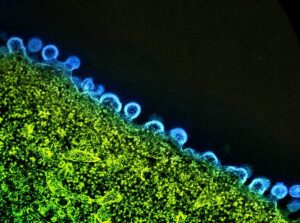WASHINGTON, D.C., March 21, 2024 — Bipartisan congressional leaders have announced a $100 million increase for Alzheimer’s and dementia research funding at the National Institutes of Health (NIH) for fiscal year 2024 (FY24). The bill also includes $34 million to fund and continue to implement the BOLD Infrastructure for Alzheimer’s Act (P.L. 115-406). Throughout the FY24 appropriations process, the Alzheimer’s Association, the Alzheimer’s Impact Movement (AIM) and their dedicated volunteers throughout the nation have advocated for a research funding increase and BOLD funding.
“Because of this additional $100 million in Alzheimer’s research funding, scientists will be able to drive innovation and accelerate improvements in care, treatment and prevention for Alzheimer’s and all other dementia,” said Robert Egge, Alzheimer’s Association chief public policy officer and AIM president. “Thank you to our dedicated advocates and bipartisan congressional champions for their support and commitment to the Alzheimer’s community.”
Chair Patty Murray (D-Wash.), Vice Chair Susan Collins (R-Maine), Chair Tammy Baldwin (D-Wis.), Ranking Member Shelley Moore Capito (R-W. Va.) in the Senate and Chair Kay Granger (R-Texas), Ranking Member Rosa DeLauro (D-Conn.) and Chair Robert Aderholt (R-Ala.) in the House were instrumental in securing this critical funding. This announcement demonstrates a continued, bipartisan commitment to advancing Alzheimer’s and dementia research and public health.
When the National Alzheimer’s Project Act (NAPA) — legislation championed by the Alzheimer’s Association and AIM — was signed into law, the federal government invested just $448 million annually. Added to current NIH spending, the annual Alzheimer’s and dementia research funding by the federal government will be as much as $3.8 billion.
In addition to supporting new research into Alzheimer’s and all other dementia, the appropriations package includes $34 million to fund the BOLD Infrastructure for Alzheimer’s Act. Passed with overwhelming bipartisan support in December 2018, the law directs the Centers for Disease Control and Prevention (CDC) to strengthen the public health infrastructure across the country by implementing effective Alzheimer’s interventions focused on public health issues such as increasing early detection and diagnosis, reducing risk, and supporting the needs of caregivers. The BOLD Act expires soon, but progress is being made to advance the BOLD Infrastructure for Alzheimer’s Reauthorization Act, which would reauthorize this critical law.
“Alzheimer’s is a devastating disease impacting families and communities throughout the nation,” said Egge. “With this congressional action, we will stay on the path to discovering scientific breakthroughs. We are grateful to Congress for their ongoing support in the fight against Alzheimer’s and other dementia.”
The House and Senate are expected to pass the FY24 appropriations bill and advance it to the president, where it is expected to be signed into law.
“Because of this additional $100 million in Alzheimer’s research funding, scientists will be able to drive innovation and accelerate improvements in care, treatment and prevention for Alzheimer’s and all other dementia,” said Robert Egge, Alzheimer’s Association chief public policy officer and AIM president. “Thank you to our dedicated advocates and bipartisan congressional champions for their support and commitment to the Alzheimer’s community.”
Chair Patty Murray (D-Wash.), Vice Chair Susan Collins (R-Maine), Chair Tammy Baldwin (D-Wis.), Ranking Member Shelley Moore Capito (R-W. Va.) in the Senate and Chair Kay Granger (R-Texas), Ranking Member Rosa DeLauro (D-Conn.) and Chair Robert Aderholt (R-Ala.) in the House were instrumental in securing this critical funding. This announcement demonstrates a continued, bipartisan commitment to advancing Alzheimer’s and dementia research and public health.
When the National Alzheimer’s Project Act (NAPA) — legislation championed by the Alzheimer’s Association and AIM — was signed into law, the federal government invested just $448 million annually. Added to current NIH spending, the annual Alzheimer’s and dementia research funding by the federal government will be as much as $3.8 billion.
In addition to supporting new research into Alzheimer’s and all other dementia, the appropriations package includes $34 million to fund the BOLD Infrastructure for Alzheimer’s Act. Passed with overwhelming bipartisan support in December 2018, the law directs the Centers for Disease Control and Prevention (CDC) to strengthen the public health infrastructure across the country by implementing effective Alzheimer’s interventions focused on public health issues such as increasing early detection and diagnosis, reducing risk, and supporting the needs of caregivers. The BOLD Act expires soon, but progress is being made to advance the BOLD Infrastructure for Alzheimer’s Reauthorization Act, which would reauthorize this critical law.
“Alzheimer’s is a devastating disease impacting families and communities throughout the nation,” said Egge. “With this congressional action, we will stay on the path to discovering scientific breakthroughs. We are grateful to Congress for their ongoing support in the fight against Alzheimer’s and other dementia.”
The House and Senate are expected to pass the FY24 appropriations bill and advance it to the president, where it is expected to be signed into law.
About the Alzheimer’s Association
The Alzheimer’s Association is a worldwide voluntary health organization dedicated to Alzheimer’s care, support and research. Our mission is to lead the way to end Alzheimer’s and all other dementia — by accelerating global research, driving risk reduction and early detection, and maximizing quality care and support. Our vision is a world without Alzheimer’s and all other dementia®. Visit alz.org or call 800.272.3900.
Alzheimer’s Impact Movement
The Alzheimer’s Impact Movement (AIM) is a separately incorporated advocacy affiliate of the Alzheimer’s Association. AIM works to develop and advance policies to overcome Alzheimer’s disease through increased investment in research, enhanced care and improved support. For more information, visit alzimpact.org.













Post Comment